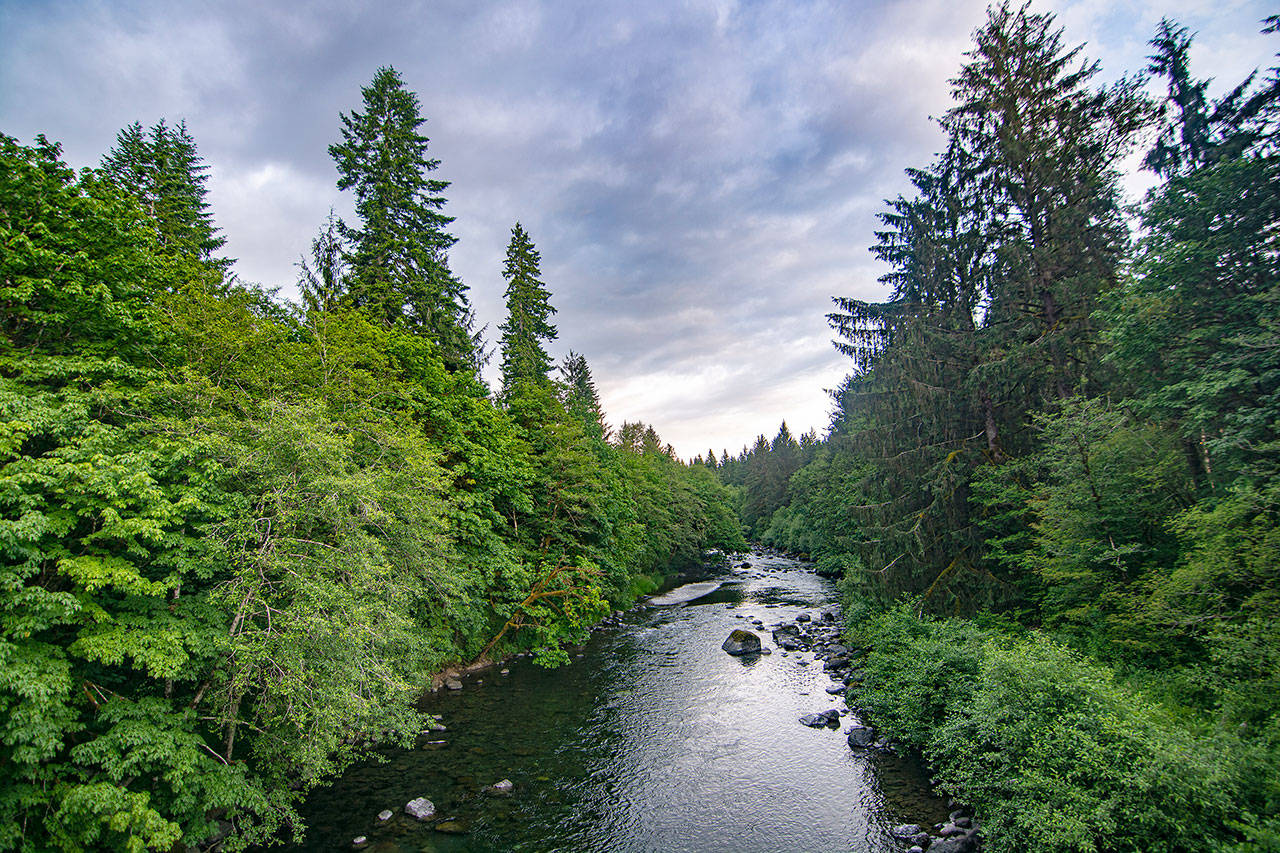FORKS — Officials on the West End are watching water levels after experiencing the second-driest spring on record and as West End rivers near or break record lows.
Forks City Attorney Rod Fleck said city officials are keeping a close eye on the city’s wells before issuing mandatory water use restrictions.
“We’re watching it very carefully,” Fleck said. “We’ve had one of the driest springs in our historic record, and we put in voluntary conservation measures a couple weeks ago.”
Fleck said that today, officials are expected to check the wells, which have been losing about a foot of water per week, and that he expects a decision on mandatory conservation measures to be made within the coming weeks.
“It’s a decision that’s made by the mayor in consultation with the public works director and his staff,” Fleck said.
Forks residents already have been asked to avoid watering lawns, limit washing vehicles and to be conscious of water use during daily tasks.
The state Department of Ecology released a map Thursday showing that Tuesday the West End — which includes both Clallam and Jefferson counties — was facing a “severe drought” while East Clallam and East Jefferson counties were facing a “moderate drought.”
There are two levels of drought beyond “severe drought.”
On Tuesday, the Hoh River hit a record low of 770 cubic feet per second (cfs), breaking the 2015 record of 792 cfs. That river usually flows at about 1,900 cfs this time of year.
On Thursday, flows in the Calawah River were as low as 93.6 cfs, well under the median flow of 229 cfs. The lowest flow the river has seen on June 27 was in 2015, when flows on that day were as low as 83 cfs. On Tuesday, flows dropped below 80 cfs.
Rivers in central Clallam County were still about double the record low flows set in 2015.
“The little rain that we’re getting knocks down the dust and provides some water for grass to grow a little, but it’s not addressing the reduction in our groundwater system,” Fleck said.
There’s a new “severe drought” area in northeast Washington in today’s #DroughtMonitor. More on #WAdrought at: https://t.co/6lbaZlBWqN @DroughtCenter pic.twitter.com/rHQxTyEBE7
— WA Dept of Ecology (@EcologyWA) June 27, 2019
Fleck and other West End officials met with state Department of Ecology officials Tuesday to discuss the drought and how the state might help.
During his presentation, Mike Gallagher of Ecology’s Water Resources Program frequently compared this year’s drought to 2015, when the state experienced record low snowpack that was caused by higher-than normal temperatures during the winter.
Gov. Jay Inslee issued an emergency drought declaration in April and on May 20 he expanded that declaration to include 27 watersheds, including the entire Olympic Peninsula.
Gallagher said May was the ninth warmest in Washington since 1895, that 71 percent of rivers are flowing below normal levels and that the Olympic Coast experienced the second driest spring since 1895.
“We had an abnormally warm May,” Gallagher said.
He said that although snowpack isn’t nearly as low as it was in 2015, when it was less than 20 percent of average, it is still lower than it was in 2016, 2017 and 2018.
He said Ecology is responsible for leading the drought response, including aiding state agriculture, protecting public water supplies, safeguarding fish and boosting stream flows, maintaining critical energy supplies and preparing to fight wildfires.
This month, Ecology began accepting grant applications for projects that benefit areas impacted by drought. The state has $2 million available and grants are capped at $350,000 and require a 50 percent match.
Fleck said the city is working on a grant application in hopes of getting help to fund drilling another well for the city, which would be deeper than the existing wells.
He said following the 2015 drought the city purchased property for the project, but hasn’t gone through the process yet.
He estimated that reports and permitting would cost around $30,000, but Fleck said he was unsure of the cost to complete the project.
Fleck said there have been concerns that the drought would impact smaller Class A water systems that are outside city limits, leading to discussions about trucking water.
The details on how that would work is still being worked out, he said.
“We have an ordinance on bulk water sale that leaves it up to the mayor,” Fleck said. “If we’re going to start working through that, there’s costs. Is Ecology helping to offset those costs?”
________
Reporter Jesse Major can be reached at 360-452-2345, ext. 56250, or at jmajor@peninsuladailynews.com.

